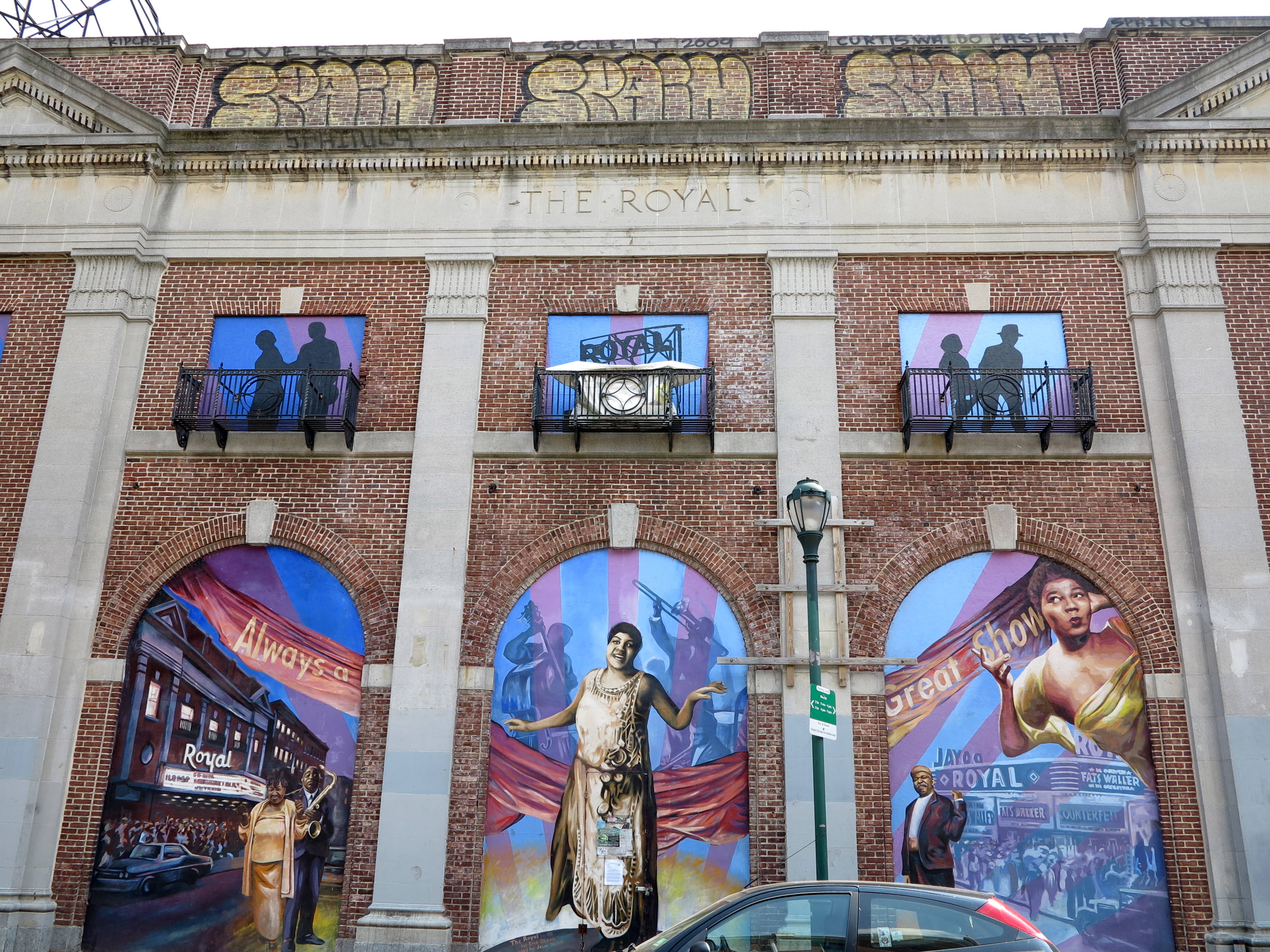Historical Commission approves facadectomy for Royal Theater

The unpermitted placement of a rowhouse air conditioning unit generated more discussion from Historical Commission members than the Royal Theater’s hardship proceeding.
The Royal, once a landmark entertainment venue for black Philadelphia, closed in 1970 and has remained vacant since.
After an hour-long proceeding on Friday the Philadelphia Historical Commission put to rest its role in the protracted question of South Street’s historic Royal Theater, virtually without comment, by unanimously approving the demolition of the Royal and the property’s subsequent redevelopment as a mixed-use building.
Because the Royal is listed in the Philadelphia Register of Historic Places any alteration, much less substantial demolition, requires approval of the Historical Commission through a hardship appeals process.
Two sets of consultants arrived at the same conclusion about the Royal: There is no use to which the Royal Theater can be reasonably adapted, given the anticipated renovation costs and projected revenue stream from different reuses. It is too far gone to make reuse feasible. That was the message from Universal Companies, which has owned the long-vacant theater since 2000, from their building and economic consultants, and from the Historical Commission’s independent hardship reviewers.
Universal Companies has owned The Royal since 2000. Shahied Dawan, Universal’s CFO and vice president, told the commission that it was always Universal’s intent to redevelop the property and pursued several attempts to turn it into some type of entertainment venue. None panned out. In 2012 and 2013 Universal submitted hardship applications to the commission seeking to demolish all but the theater’s facade, but both times the commission deemed these applications incomplete. One sticking point was that Universal had not attempted to sell the property, as required by the city’s preservation law. One prospective buyer backed out of the contract because of financial concerns about the feasibility of reuse.
Most recently Universal partnered with Dranoff Properties on a plan to raze all but the Royal’s façade and incorporate it into a new mixed-use building, which would feature ground-floor retail topped with 45 residential units.
The city’s preservation law stipulates that the owners must demonstrate that the property “cannot be used for any purpose for which it is or may reasonably be adapted.” And to justify the demolition, the owners must also “demonstrate that sale of a property is impracticable, that commercial rental cannot yield a reasonable rate of return, and that other potential uses are foreclosed.”
The Commission’s unanimous support for both the hardship application and plans for the new construction were based on recommendations from its committees.
Though the Historical Commission’s approval was a significant preservation hurdle the demolition is still subject to review by the Pennsylvania Historical and Museum Commission (PHMC). Universal received a $50,000 grant for preservation work at The Royal in 2008, and in return PHMC placed a 15-year deed restriction on the property, which requires PHMC approval of any alteration to the building.
Additionally the Preservation Alliance for Greater Philadelphia holds a façade easement on The Royal’s South Street frontage – arguably the reason the façade is even being retained. The Alliance sees the redevelopment plans as compliant with its preservation easement, and as details are refined expects to work with Philadelphia Historical Commission staff to review.
The Dranoff/Universal redevelopment plan will also need to go before the Civic Design Review committee for approval.
The proposed redevelopment has been met with strong support from Councilman Johnson, South of South Neighbors Association and South Street West Business Association. Their sentiment: The Royal site needs to become a positive anchor on the South Street West commercial corridor instead of dead weight.
WHYY is your source for fact-based, in-depth journalism and information. As a nonprofit organization, we rely on financial support from readers like you. Please give today.




